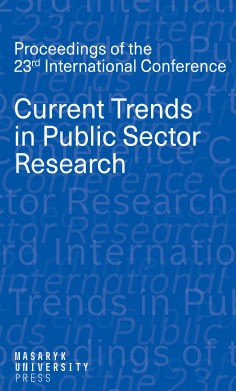Non-take-up Phenomenon in Conditions of the Czech Republic
Non-take-up Phenomenon in Conditions of the Czech Republic
Author(s): Iveta ŠTARHOVÁ, Jana Godarová
Subject(s): Government/Political systems, Welfare systems, Politics and society
Published by: Masarykova univerzita nakladatelství
Keywords: non-take up rate; Czech Republic; microsimulation modeling; failure of social policy; social benefits;
Summary/Abstract: The concept of a social state and its size differs from country to country and is influenced by characteristics such as its history, degree of solidarity and the mentality of its citizens which is manifested in their desires, etc. The main question remains of how extensive the social security system of the Czech Republic can afford to be under the condition that the state budget is balanced. In addition to the budget constraints placed on the system, some states are also struggling with a non-take-up phenomenon in the situation where an individual or household is entitled to assistance or social benefit under the legislation in force. In the Czech Republic, insufficient attention is paid to this problem, in spite of the fact that a high non-take-up rate can be a warning about problems in setting up or targeting the system. To identify the gravity of the problem, the authors employ micro-simulation modeling using data from the Czech EU-SILC survey from 2017. The paper is primarily focused on two specific types of benefits – the benefit package for senior citizens and the benefit package aimed at families with children. A part of the final discussion of the results will encompass methodological and data constraints and the risk groups threatened by the non-take-up phenomenon.
Book: Current Trends in Public Sector Research: Proceedings of the 23rd International Conference
- Page Range: 221-227
- Page Count: 7
- Publication Year: 2019
- Language: English
- Content File-PDF

